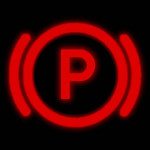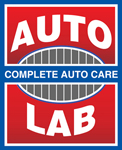YOUR BRAKING FAQs
When it comes to your safety behind the wheel, your brakes are second in importance only to the tires on your vehicle.
After all, without your brakes, how would you be able to keep from hitting that motorist who just swerved in front of you, safely steer around the tire remnant on the highway or come to a controlled stop on snow roads?
If your brakes squeak or grind, it might be time to take your vehicle into Auto Lab. We provide brake repairs in Libertyville, IL.
At Auto Lab, we offer FREE BRAKE INSPECTIONS and a LIFETIME WARRANTY on brake pads and calipers.
How Often Should I Need New Brakes?
How often you need to replace your brake pads and rotors depends on several things.
- The type of driving you do. Frequent stop and go driving decreases the life of your brakes, as does regularly slamming on the brakes vs. slower, gradual stopping.
- The vehicle you’re driving. Believe it or not, the engineering of the car can affect how long the brake pads and rotors last.
- The last set of brake pads installed on your car. Because many consumer comparison price shop for brake repairs, some auto repair shops compete by quoting a low price on the phone. And in order to offer this low price, it can often mean lower quality brake pads that won’t last as long as higher quality brakes.
Signs You Need New Brake Pads or Rotors
- You hear a squeaking, squealing, grinding or clunking when you apply or release the brake pedal.
- Your brake pedal vibrates or pulsates when you stop.
- Your brake pedal is mushy or has to be pushed to the floor before you can stop.
- Your brake pedal is hard – extremely hard to push.
- Your vehicle pulls to the right or left when you press the brake pedal.
- The brake fluid warning light or the parking brake light is illuminated on your dashboard.
If you ignore these signs, you might be unable to stop in time to avoid a collision or, worst-case scenario, lose the ability to stop your car at high speeds. Play it safe and come in for a Libertyville brake repair.
Why Choose Auto Lab for New Brakes?
In addition to our free brake inspection and lifetime warranty on brake pads and rotors, Auto Lab offers you free loaner cars, a free shuttle service, a free car wash and a 3-year/36,000-mile warranty with our Libertyville brake repairs.
In addition, your car brakes will be serviced by a skilled, experienced auto technician. Check out the credentials of our technical experts! They have dedicated their careers to automotive service. In addition:
- We visually inspect disc brake pads, measure the rotors for proper thickness, and test the calipers to ensure they’re applying pressure evenly to the brake pads.
- We visually inspect drum brake shoes, measure the drums for proper thickness and roundness, and make sure the brake hardware is working properly.
- We inspect the parking brake shoes and the parking brake cable.
- We’ll test the brake fluid to make sure it doesn’t contain too much moisture.
- We test to ensure there are no leaks in the brake lines or hoses.
If you need new brake pads (disc brake systems) or shoes (drum brakes), we will also:
- Machine or replace your rotors or drums.
- Lubricate the caliper slides.
- Clean and adjust drum brakes.
- Flush your brake fluid.
The latter is more important than ever before because most cars today have antilock brakes or ABS, which automatically pumps your brakes at rapid speeds to help you avoid “locking up” the brakes and skidding. The ABS motor that pumps the brakes is susceptible to dirt and moisture, which accumulate over time in brake fluid. Replacing the pump is a costly repair, making preventive maintenance a bargain by comparison. (Read all about it in our article, “Do I really need a brake fluid flush? Yes! Here’s why.)
What Does This Warning Light Mean?

This light is the parking brake warning light. While we know it usually illuminates to show us that the parking brake or emergency brake is engaged and needs to be released, it can also serve as a warning light.
If it remains lit after the parking brake is released or if it turns on and off intermittently while you’re driving, it means you need to add brake fluid. If you check the fluid, add as needed and the light still doesn’t turn off, you’ll need to have the brake system inspected.
In fact, unless there’s a leak in your brake system, you’re probably due for a brake inspection regardless. Why? As your brake pads wear, it takes more brake fluid to press the pads or shoes against the rotors or drums and bring the vehicle to a stop. This dashboard light could gently be telling you it’s nearly time for brake repairs and service.
If the light has an illuminated wrench underneath it, then the parking brake needs servicing. The vehicle can be driven safely, but it needs an auto mechanic’s attention.
What Else Should Be Done at the Same Time?
Services that are often needed or recommended at the same time as brakes include:
- Flushing the brake fluid (which we mentioned above).
- Rotating your tires. We already have the tires off the vehicle, so this won’t cost you any extra!
- Cleaning and adjusting drum brakes. This will ensure the brake shoes are applying evenly and doing their share of the work. This also adjusts the parking brake, which might be forgotten about almost as much as checking the pressure in the spare tire.

